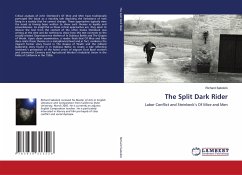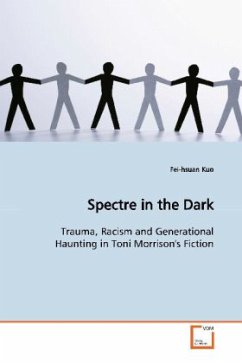
The Split Dark Rider
Labor Conflict and Steinbeck's Of Mice and Men
Versandkostenfrei!
Versandfertig in 6-10 Tagen
39,99 €
inkl. MwSt.

PAYBACK Punkte
20 °P sammeln!
Critical analyses of John Steinbeck's Of Mice and Men have traditionally portrayed the book as a morality tale depicting the limitations of man living in a society that he cannot change. These approaches typically view the novel as having been written to show such themes as loyalty and powerlessness. As insightful as these critical approaches are, they seem to divorce the text from the context of the other books Steinbeck was writing at the time and do nothing to show how this text connects to the socially related, Depression-era themes of In Dubious Battle and The Grapes of Wrath. Upon closer...
Critical analyses of John Steinbeck's Of Mice and Men have traditionally portrayed the book as a morality tale depicting the limitations of man living in a society that he cannot change. These approaches typically view the novel as having been written to show such themes as loyalty and powerlessness. As insightful as these critical approaches are, they seem to divorce the text from the context of the other books Steinbeck was writing at the time and do nothing to show how this text connects to the socially related, Depression-era themes of In Dubious Battle and The Grapes of Wrath. Upon closer examination, a reader finds that Of Mice and Men does relate these themes on a metaphorical level and,in fact, combines the migrant farmer story found in The Grapes of Wrath and the militant leadership story found in In Dubious Battle to create a tale reflecting Steinbeck's perception of the failed union of migrant Dust Bowl workers and communist Cannery and Agricultural Worker's IndustrialUnion in the fields of California in the 1930s.












